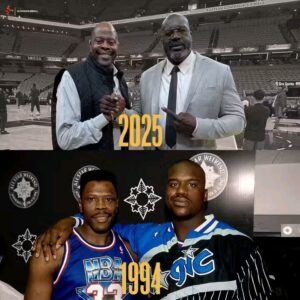Breaking News: VAR Expert Points Out 6 Errors in Tottenham 1-0 Liverpool Carabao Cup Semi-Final….
Breaking News: VAR Expert Points Out 6 Errors in Tottenham 1-0 Liverpool Carabao Cup Semi-Final…..
In a stunning revelation that has sent shockwaves through the footballing world, a VAR expert has pointed out six significant errors in the Carabao Cup semi-final clash between Tottenham Hotspur and Liverpool, which ended in a controversial 1-0 victory for Spurs. The match, played at the Tottenham Hotspur Stadium, was fraught with drama, as decisions both on the field and through the video assistant referee (VAR) system led to heated discussions and widespread criticism.
The game saw Tottenham secure a narrow victory over Liverpool, with a late goal from Harry Kane in the dying minutes of the match proving to be the difference. However, the result has been overshadowed by the revelations about the number of controversial incidents that went unnoticed or were incorrectly handled by the VAR team. According to the expert, the errors were crucial, and several of the decisions had a direct impact on the outcome of the match.
This article will take an in-depth look at the six key VAR mistakes pointed out by the expert and examine the implications these errors have had on both teams involved.
The Incident: A Heated Carabao Cup Semi-Final
The Carabao Cup semi-final between Tottenham and Liverpool was always set to be a fiery encounter. Both teams were eager to secure a place in the final, and the high stakes created an intense atmosphere. Tottenham, with their new manager Ange Postecoglou at the helm, were looking to make a statement, while Liverpool, under Jürgen Klopp, were determined to continue their impressive run in domestic cup competitions.
The match itself was closely contested, with both teams showing attacking intent, though it was clear that defensive frailties played a role in the drama that unfolded. Harry Kane’s late winner, however, came amidst significant controversy, as many felt the game had been marred by a series of contentious decisions, all of which were reviewed or influenced by VAR.
The Six Key Errors
After the match, a VAR expert, speaking anonymously, highlighted six errors that were made by the VAR team during the course of the match. These errors ranged from issues with offside decisions to questionable penalty calls and fouls. The following are the six mistakes that the expert pointed out:
1. Incorrect Offside Call on Liverpool’s Goal
The first major error occurred early in the game when Liverpool had a goal ruled out for offside. Mohamed Salah’s well-taken strike found the back of the net, only for the linesman to raise his flag for an offside against the Egyptian forward. However, after reviewing the footage, the VAR expert argued that the offside decision was incorrect.
The analysis revealed that Salah was clearly onside when the ball was played through to him, with his last defender being well behind him. While VAR reviewed the goal, it failed to spot the error, and the goal was disallowed. Had the goal stood, Liverpool would have taken a 1-0 lead, potentially changing the course of the match.
2. A Potential Handball by Tottenham’s Eric Dier
One of the most contentious moments in the game occurred when Tottenham’s Eric Dier appeared to handle the ball inside his own penalty area. The ball, driven in by Liverpool’s Andrew Robertson, struck Dier’s arm as he attempted to block the cross. The referee did not initially award a penalty, and after VAR review, the decision was upheld.
The VAR expert highlighted that Dier’s arm was in an unnatural position, and with the ball being played at such close range, it was a clear handball. Under the current laws, this should have resulted in a penalty for Liverpool. However, despite multiple angles showing the incident, VAR failed to overturn the referee’s decision, and the penalty was not awarded.
3. Unjustified Red Card for Liverpool’s Fabinho
Another major talking point in the match was the dismissal of Liverpool midfielder Fabinho in the second half. The Brazilian received a second yellow card for a foul on Tottenham’s Yves Bissouma, which many believed was a harsh decision. The initial yellow card was for a late tackle on Bissouma earlier in the match, but the second was for a challenge that seemed to be more of a 50/50 battle for the ball.
The VAR expert noted that, upon review, the tackle from Fabinho was not dangerous or reckless enough to warrant a second yellow card. The contact was minimal, and the ball was in close proximity to both players. As a result, the decision to send Fabinho off was deemed excessive, especially given the context of the match and the fact that the challenge was not significantly worse than other fouls that had gone unpunished during the game.
4. Harry Kane’s ‘Offside’ Missed in the Build-Up to His Goal
Harry Kane’s late winner in the 87th minute was the moment that ultimately decided the game, but not without controversy. Kane latched onto a cross from Dejan Kulusevski and slotted the ball into the net. However, many felt Kane was offside in the build-up to the goal, and the VAR team did indeed review the footage.
According to the VAR expert, the review was faulty, as Kane was marginally offside when the ball was initially played to Kulusevski. Despite the clear visual evidence, the goal was allowed to stand. The expert criticized the VAR team for not paying closer attention to the fine details of the offside, stating that Kane’s position was sufficiently beyond the last defender when the ball was played.
5. No Penalty for a Late Tackle on Liverpool’s Harvey Elliott
In the dying moments of the game, Liverpool’s Harvey Elliott was on the receiving end of a robust challenge from Tottenham’s Pierre-Emile Højbjerg. Elliott was knocked off balance after being tackled from behind, and many believed it to be a clear foul deserving of a penalty. The referee, however, waved play on, and after a VAR review, no penalty was awarded.
The VAR expert remarked that the challenge was reckless and dangerous, with Højbjerg’s tackle coming from behind and making contact with Elliott’s ankle. While the challenge was not violent enough to warrant a red card, it certainly met the criteria for a penalty, and the decision not to award it was a glaring mistake.
6. Mismanagement of Time-Wasting Incidents
Throughout the game, there were multiple instances of time-wasting, particularly during set pieces and throw-ins, where Liverpool’s players took longer than necessary to restart play. The referee, under pressure from the crowd, failed to penalize these actions, and the VAR team did not intervene to review the time-wasting incidents.
The expert noted that the time-wasting disrupted the flow of the match, particularly towards the end, as Liverpool tried to maintain control of the game. VAR, which has been utilized in recent years to review a wide range of decisions, was surprisingly absent in addressing this issue. According to the expert, the failure to act on these time-wasting tactics was another flaw in the overall management of the game.
Impact on the Game
These six errors, as pointed out by the VAR expert, had a significant impact on the match and the overall outcome. Tottenham’s 1-0 victory, while celebrated by their fans, was far from convincing, and many believe the match should have gone differently had these key errors been corrected.
Liverpool, already under pressure to secure a place in the final, were undoubtedly aggrieved by the failure of VAR to intervene in key moments. The decisions ultimately contributed to an uneven playing field, with Tottenham benefiting from a series of missed or incorrect calls. The controversy surrounding the match is likely to fuel further debates about the effectiveness and accuracy of VAR in modern football.
Conclusion
The Tottenham vs. Liverpool Carabao Cup semi-final has now been overshadowed by the six errors identified by a VAR expert. While Tottenham will be pleased with the result, the controversy surrounding the officiating has left many football fans questioning the system’s ability to make fair and accurate decisions. The implementation of VAR was supposed to reduce mistakes, but as this match clearly shows, it remains a work in progress. The Premier League, the EFL, and football’s governing bodies will need to take these findings into account to ensure that such errors do not tarnish the beautiful game.













Post Comment